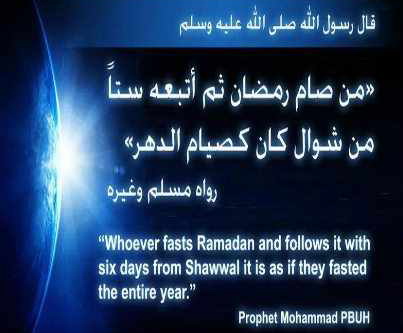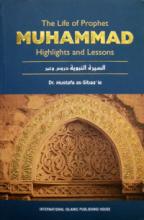The Prophet of Mercy Website
Muslim World League - Global Commission for Introducing the Messenger
At a time when mankind and human civilization were on the edge of destruction, the Lord and Creator of the word caused a man to be born in Arabia who was entrusted with the most difficult task: not only to rescue mankind from imminent destruction but also to raise it to sublime height, heights hitherto beyond the knowledge of historians and the imagination of poets. If there were not incontrovertible historical evidence to demonstrate his achievements, it would be difficult to believe such greatness.
This man was Muhammad (peace be upon him) who was born in the sixth century. He saved mankind from imminent danger, gave it new life, new ambition, fresh energy, a revitalised sense of human dignity and intellect, as also a new found idealism. It was because of him that a new era came about, an era of spirituality in art and literature, of personal sincerity and selfless service of others, all of which produced an ordered, graceful and kindly culture.
His most precious gifts to man were his devotion to righteousness and aversion to evil, his hatred of false gods and a passion for establishing justice and morality, and a readiness to lay down one’s life for these righteous goals. Such goals ultimately are the fountainhead and incentive for all reforms and improvements. Whatever great and sublime heights man has attained have been the result of such noble sentiments — indeed, all material resources, means and methods owe their existence to human will and determination.
That great benefactor of humanity replaced barbarism and brutality with the milk of human kindness, magnanimity and courtesy. He struggled unceasingly for the propagation of his noble teachings with complete disregard for his own self, his life or prestige. Precisely because of this struggle, there arose from among an uncivilized and ill-mannered people noble-hearted men who led a graceful and kindly life, men who started a new era of courtesy and warmth in human history, who engendered gentleness and goodness in those around them.
The world obtained a fresh lease of life; justice and fairness became its hallmark; the weak were emboldened to claim their rights from the haughty and strong; mercy and kindness became the norms. It was a time when humanitarianism became a driving force, faith and conviction captured human hearts, mankind began to take pride in selflessness, and virtuous behaviour became habitual with people.
We list below, in brief, the precious gifts of Islam which have played a key role in the advancement of human values and culture. A new and bright world, quite different from the decaying and disintegrating humanity at the time of its advent, came into being as a result of these Islamic contributions:
1. The clear and unambiguous creed of the Oneness of God.
2. The concept of human equality and brotherhood.
3. The concept of human dignity and man being the masterpiece of God’s creation.
4. Acknowledgement of the proper status of women and the restoration of their legitimate rights.
5. The rejection of despair and the infusion of hope and confidence in human beings. 6. The fusion of the secular and the sacred, the refusal to accept any cleavage between them.
7. The integration of religion and knowledge, making one dependent on the other and raising respect for knowledge by declaring it a means of attaining nearness to God.
8. Emphasis on the use of intellectual faculties in religious and spiritual matters and encouraging the study and contemplation of natural phenomena.
9. Charging the followers of Islam with the responsibility of spreading virtue and goodness in the world, and making it a duty incumbent on them to restore truth and justice.
10. The establishment of a universal creed and culture. I will not elaborate upon these points here. Instead, I would rather cite a few eminent western thinkers and writers who have acknowledged these virtues of Islam. one of the bases of culture and civilization — something that enhances gentility, and refinement, civility in conduct as well as in literature — is the acknowledgement of a truth, appreciation of the great achievements of others and returning thanks to those who have done us any favour.
The day this noble sentiment is expelled from our lives, literature, ethical standards, intellectual labours, even the right of expressing our thoughts freely, will become meaningless. It will not be a world to live in and die for. It will be a world of beasts and brutes where the ruling passion is to fend for oneself alone. No sentiment will remain except the fulfilment of carnal desires. All rightly ordered relationships between teacher and taught, benefactor and beneficiary, physician and patient, even between parents and children, will peter out and lose their significance. Gratitude, as defined by William H. Davidson, a contributor to the Encyclopedia of Religion and Ethics, is a spontaneous and natural sentiment generated by the kindness and benefit conferred by someone. It is a human virtue, at once abiding and universal.
Davidson in this respect says: Gratitude has been defined as that delightful emotion of love to him who has conferred a kindness on us, the very feeling of which is itself no small part of the benefit conferred. Gratitude is an unselfish joyous response to kindness — a response that is immediate and spontaneous; the ultimate meaning of which is that human nature is so constituted that affection and unity between persons is the foundation of it, ill-will and enmity (all indications to the contrary notwithstanding) being abnormal and depraved.5
******





